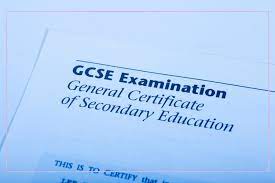When it comes to choosing the best A-level combinations for your academic journey, the right mix of subjects can open doors to exciting opportunities and pathways, especially for your university application.
In fact, according to recent educational statistics, selecting the right blend of subjects significantly impacts your overall performance and prospects, as it highlights your strengths and interests in your chosen field.
In this article, we will explore the 15 best A-level subject combinations that can set you on the path to success. Let’s see the perfect combinations that can shape your academic and professional aspirations.
Table of contents
- What are A-Levels?
- How Many Subject Combinations Can You Choose in A-Level?
- Overview of the 15 Best A-Level Subject Combinations That Go Well Together
- 15 Best A-Level Subject Combinations That Go Well Together
- #1. Biology, Chemistry, Physics, Math
- #2. Sociology, Psychology, Philosophy
- #3. Business Studies, Economics, Maths (and Further Maths)
- #4. English Literature, History, Philosophy
- #5. Chemistry, Physics, Maths (and Further Maths)
- #6. Modern Foreign Language, Literature, Language
- #7. History, Geography, Environmental Science (or Archaeology)
- #8. Accounts, Economics, Maths, Computer Science
- #9. Biology, Chemistry, Maths
- #10. Physics, Maths, Further Maths
- #11. Art and Design, Theatre and Film Studies, Photography
- #12. Religious Studies, Psychology, Philosophy
- #13. History, Economics, Politics
- #14. Art, Mathematics, Physics, Computer Science
- #15. Law, Politics, Business Studies
- FAQs
- Conclusion
- References
- Recommendations
What are A-Levels?
A-Levels, short for Advanced Level qualifications, represent a vital phase in many students’ educational journey. These qualifications, often taken in the final two years of secondary school, serve as a bridge to higher education and future careers.
A-Levels offer an in-depth exploration of subjects that captivate your interest, preparing you for specialized study at the university level.
Moving beyond the broad scope of GCSE courses, A-Levels enable focused exploration of subjects aligned with personal interests. With options spanning sciences, humanities, arts, and languages, A-Levels empower students to tailor their studies and develop expertise for higher education and future careers.
Emphasizing critical thinking and independent research, A-Levels involve a mix of classroom learning, practical work, and coursework. These qualifications equip students with essential skills and knowledge, preparing them for academic pursuits and professional pathways.
See also: A-levels 2024: Everything You Need to Know
How Many Subject Combinations Can You Choose in A-Level?
When it comes to A-Levels, students have the flexibility to combine a range of subjects based on their interests and goals.
The number of subjects you can choose typically ranges from three to four. This enables a well-rounded education, fostering a deeper understanding of diverse topics.
Importantly, the selection process involves careful consideration of subject compatibility and personal strengths. Transitioning from GCSEs, you have the opportunity to craft a customized curriculum that aligns with your aspirations.
By strategically choosing subjects, you can create a balanced combination that opens doors to various academic and career pathways.
See also: A Level Subjects you can’t Afford to Miss | 2024
Overview of the 15 Best A-Level Subject Combinations That Go Well Together
Selecting the ideal A-level subject combinations can be challenging. You want to find a delicate balance between following your passions, meeting university requirements, and realizing your career objectives.
However, here is an overview of the best A-level subject combinations for you:
- Biology, Chemistry, Physics, Math
- Sociology, Psychology, Philosophy
- Business Studies, Economics, Maths (and Further Maths)
- English Literature, History, Philosophy
- Chemistry, Physics, Maths (and Further Maths)
- Modern Foreign Language, Literature, Language
- History, Geography, Environmental Science (or Archaeology)
- Accounts, Economics, Maths, Computer Science
- Biology, Chemistry, Maths
- Physics, Maths, Further Maths
- Art and Design, Theatre and Film Studies, Photography
- Religious Studies, Psychology, Philosophy
- History, Economics, Politics
- Art, Mathematics, Physics, Computer Science
- Law, Politics, Business Studies
See also: How to Appeal A Level Results – Process Explained in 2024
15 Best A-Level Subject Combinations That Go Well Together
Choosing subjects that complement each other can enhance your overall understanding and skills, making you a well-rounded student poised for success.
Below are the best A-level subject combinations that go well together.
#1. Biology, Chemistry, Physics, Math
The Biology, Chemistry, Physics, and Math A-Level combination offers a robust foundation for scientific pursuits. By blending these subjects, students gain a comprehensive understanding of natural phenomena.
Biology delves into life processes, Chemistry explores matter’s composition, and Physics probes the fundamental forces. Math, the universal language of science, underpins analytical skills.
Notably, this blend enriches comprehension across disciplines. Students can seamlessly move towards careers in medicine, research, engineering, or data analysis.
Overall, this combination equips learners with a versatile toolkit, nurturing inquisitive minds ready to unravel the mysteries of the universe.
#2. Sociology, Psychology, Philosophy
Combining Sociology, Psychology, and Philosophy A-Levels cultivates a deep comprehension of human behaviour and societal dynamics.
Sociology scrutinizes social structures, Psychology delves into the mind, while Philosophy ponders life’s fundamental questions.
Seamlessly integrating these subjects, students gain insights into thought processes, emotions, and cultural influences. Engaging in critical discussions and exploring diverse perspectives nurtures well-rounded thinking.
Active participation in debates and reflective analyses refine analytical skills. Transitioning from prior education, this blend prepares students for careers in counseling, social work, or academia.
Ultimately, this combination fosters an empathetic, open-minded approach to deciphering the intricate tapestry of human existence.
#3. Business Studies, Economics, Maths (and Further Maths)
The amalgamation of Business Studies, Economics, and Maths (along with Further Maths) at A-Level forms a potent toolkit for understanding economic systems.
Business Studies hones practical acumen, Economics deciphers market dynamics, while Maths quantifies complex concepts. Seamlessly intertwined, these subjects foster strategic decision-making skills, with real-world applications.
Engaging with case studies and numerical analyses refines problem-solving abilities. Transitioning from earlier studies, this combination equips students for roles in finance, management, or entrepreneurship.
By comprehending financial trends and evaluating risks, learners are prepared to navigate the intricate realm of commerce and contribute meaningfully to global economies.
See also: What Are GCSE Mocks Exam? Your Ultimate Guide For GCSE and A-Level
#4. English Literature, History, Philosophy
The blend of English Literature, History, and Philosophy A-Levels nurtures a profound understanding of human thought and expression.
English Literature delves into literary masterpieces, History unravels past narratives, and Philosophy contemplates fundamental concepts. Seamlessly intertwined, these subjects foster critical thinking and interpretive skills.
Through lively discussions and reflective analyses, students explore ideas that shape societies. This subject combination prepares individuals for careers in writing, teaching, or research.
By grasping the intricacies of language, culture, and thought, learners develop a holistic perspective of human existence.
#5. Chemistry, Physics, Maths (and Further Maths)
The dynamic fusion of Chemistry, Physics, and Maths (including Further Maths) at A-Level forms a potent foundation for scientific exploration.
Chemistry unravels matter’s composition, Physics uncovers fundamental forces, while Maths quantifies intricate patterns. Interwoven seamlessly, these subjects foster analytical and experimental proficiencies.
Engaging in hands-on experiments and numerical analyses enhances problem-solving skills. This subject combination equips students for roles in research, engineering, or academia.
By understanding the building blocks of the universe and mastering mathematical tools, learners possess a versatile skill set essential for unraveling scientific mysteries and contributing to technological advancements.
#6. Modern Foreign Language, Literature, Language
The fusion of Modern Foreign Language, Literature, and Language A-Levels creates a rich linguistic tapestry for exploration.
Modern Foreign Language nurtures communication skills, Literature delves into cultural narratives, while Language dissects linguistic mechanics. Seamlessly woven together, these subjects cultivate language proficiency and cultural insights.
Engaging with literary works and linguistic analysis deepens understanding. Through vibrant discussions and textual interpretations, students embrace diverse perspectives.
In essence, this combination paves the way for careers in translation, diplomacy, or academia. By mastering languages and decoding cultural nuances, learners open doors to global communication and bridge-building across societies.
See also: Sixth Form Explained: from GCSEs to A-levels in 2024
#7. History, Geography, Environmental Science (or Archaeology)
The fusion of History, Geography, and Environmental Science (or Archaeology) at A-Level creates a multidimensional exploration of the past and the world we inhabit.
History delves into human events, Geography scrutinizes landscapes, while Environmental Science (or Archaeology) investigates natural and cultural contexts. Seamlessly blending these subjects enables a holistic comprehension of our planet’s evolution.
Engaging in historical analysis and geographical mapping enhances critical thinking. Through fieldwork and research, students unravel layers of human and environmental history.
However, this combination equips individuals for careers in research, conservation, or education. By understanding interconnected systems, learners become stewards of our global heritage.
#8. Accounts, Economics, Maths, Computer Science
The combination of Accounts, Economics, Maths, and Computer Science A-Levels offers a powerful blend of financial and analytical skills.
Accounts provide a foundation for managing finances, economics delves into market dynamics, while Maths quantifies intricate patterns. Seamlessly integrating these subjects fosters proficiency in data analysis.
Engaging in real-world scenarios and mathematical models enhances problem-solving capabilities. Students leverage technology for economic insights through coding and computational analysis.
Moving from earlier studies, this combination equips students for roles in finance, data analysis, or technology sectors. By mastering financial management and technological tools, learners are poised to navigate modern economic landscapes with confidence.
#9. Biology, Chemistry, Maths
The amalgamation of Biology, Chemistry, and Maths A-Levels forms a potent blend that delves into life’s complexities.
Biology unravels living systems, Chemistry explores matter’s composition, while Maths quantifies intricate processes. Seamlessly woven together, these subjects nurture analytical and experimental skills.
Engaging in practical experiments and numerical analyses enhances problem-solving proficiency. This combination equips students for careers in research, healthcare, or academia.
By understanding biological and chemical phenomena through mathematical lenses, learners gain a comprehensive understanding of the natural world and contribute to scientific advancements.
See also: How Much Do A-level Tutors Charge in the UK? 2024
#10. Physics, Maths, Further Maths
The Physics, Maths, and Further Maths A-Level combination offers an enriched exploration of the physical world.
Physics dissects natural phenomena, Math quantifies intricate patterns, and Further Math deepens mathematical insight. Seamlessly intertwined, these subjects foster analytical and problem-solving prowess.
Engaging in mathematical modeling and complex calculations enhances proficiency. This combination equips students for roles in engineering, research, or academia.
By deciphering the universe’s mechanics through mathematical lenses, learners gain a deeper understanding of the fundamental laws governing our reality and contribute to technological advancements.
#11. Art and Design, Theatre and Film Studies, Photography
The fusion of Art and Design, Theatre and Film Studies, and Photography A-Levels creates an artistic tapestry rich in creative expression.
Art and Design channel visual creativity, Theatre and Film Studies explore dramatic narratives, while Photography captures the world through a lens. Seamlessly intertwining these subjects nurtures artistic skills and perspectives.
Interestingly, this combination prepares individuals for careers in visual arts, performing arts, or media production.
Therefore, by mastering various modes of expression, learners embrace the diverse realms of artistry and storytelling, shaping culture and leaving a lasting impact.
#12. Religious Studies, Psychology, Philosophy
The blend of Religious Studies, Psychology, and Philosophy A-Levels deepens one’s exploration of human beliefs and thoughts.
Religious Studies delve into faith and culture; Psychology probes the mind’s intricacies, while Philosophy contemplates life’s core questions. Seamlessly intertwining these subjects nurtures critical thinking and understanding.
Engaging in reflective discussions and psychological analysis enhances insights. Hence, this combination equips students for roles in counselling, academia, or social sciences.
By comprehending human belief systems, psychological motivations, and philosophical frameworks, learners gain a profound perspective on human existence, fostering empathy and wisdom.
See also: What Are Level 3 Qualifications in the UK?
#13. History, Economics, Politics
The fusion of History, Economics, and Politics A-Levels creates a comprehensive understanding of societal evolution.
History unveils the past, Economics explores market dynamics, while Politics delves into governance systems. Seamlessly intertwined, these subjects nurture critical thinking and global awareness.
Engaging in historical analyses and policy studies enhances insights. Therefore, this combination equips students for roles in government, policy analysis, or academia.
By comprehending historical contexts, economic influences, and political structures, learners gain a multifaceted lens to interpret the complexities of human societies, fostering informed citizenship and impactful leadership.
#14. Art, Mathematics, Physics, Computer Science
The fusion of Art, Mathematics, Physics, and Computer Science A-Levels crafts a unique blend of creativity and logic.
Art nurtures visual expression, Mathematics quantifies patterns, Physics dissects natural laws, and Computer Science explores technology’s space. Seamlessly weaving these subjects fosters interdisciplinary innovation.
Engaging in creative projects and coding exercises enhances problem-solving skills. Transitioning from prior studies, this combination equips students for careers in design, tech, or research.
By merging artistic vision, mathematical precision, scientific inquiry, and technological prowess, learners gain a versatile toolkit to tackle complex challenges and shape the digital and physical worlds.
#15. Law, Politics, Business Studies
The blend of Law, Politics, and Business Studies A-Levels offers a comprehensive insight into governance and commerce.
Law elucidates legal frameworks, Politics explores governance dynamics, and Business Studies decode economic operations. Seamlessly weaving these subjects nurtures analytical and policy-making skills.
Engaging in case studies and economic analyses enhances understanding. Hence, this combination equips students for roles in law, public administration, or entrepreneurship.
By grasping legal structures, political systems, and business operations, learners gain a versatile skill set essential for navigating legal and economic landscapes, contributing to effective governance and successful enterprises.
See also: What is Level 2 Merit GCSE Equivalent in Grades?
FAQs
A-levels are advanced-level qualifications taken in secondary school. They offer in-depth subject study for higher education and career pathways.
You can typically choose three to four A-level subjects, allowing a balanced and tailored curriculum.
Yes, this combination creates a solid foundation for science-related careers and further education.
This combination provides insights into societal evolution, economics, and governance, preparing you for roles in government and policy analysis.
Combining these subjects fosters creative and technical skills, equipping you for design, technology, and problem-solving roles.
Conclusion
The journey to selecting the best A-level combinations may seem daunting, but it’s a crucial step toward shaping your academic and professional future.
By carefully considering your interests, strengths, and aspirations, you can create a powerful mix of subjects that complement each other, leading to a well-rounded education and exciting career opportunities.
Remember, the right A-level combinations can be the key that unlocks doors to a world of possibilities.
References
- Thebritishexams.com – 15 Best A-level Subject Combinations that Universities Prefer
- Aandjeducation.co – The Best A-Level Subject Combinations






